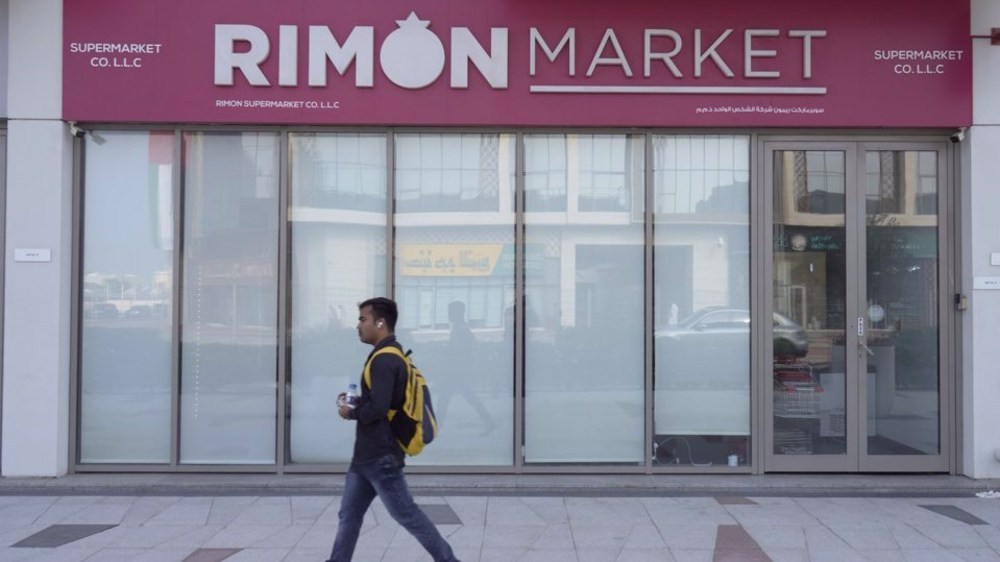Prominent Bahraini human rights activist’s health worsening: BCHR
A Bahraini human rights group says the health condition of prominent Bahraini human rights advocate Ebtisam al-Saegh, who has been on on hunger strike for a fortnight in protest against the torture and ill-treatment she has endured, has dramatically deteriorated.
According to a Twitter account attributed to the 52-year-old chairman of the Bahrain Center for Human Rights (BCHR), Nabeel Rajab, the pro-democracy campaigner has reportedly lost 11 kilograms since her arrest earlier this month, warning that she continues to lose weight.
Saegh’s blood sugar level is also dangerously low and she has lost her ability to focus.
A medical examination on Sunday revealed that she has suffered a fracture in her right hand as a result of the brutal torture she has been subjected to.
Saegh, who works for Salam for Democracy and Human Rights, went on an open-ended hunger strike on July 11 to express outrage at being tortured during interrogation at the notorious Criminal Investigation Building after her last arrest on July 3, and being denied the right to meet her family members or contact her lawyer.
Rights group Americans for Democracy & Human Rights in Bahrain has enumerated a list of restrictive measures that the Al Khalifah regime has taken against Saegh.
Manama regime officials imposed a travel ban on the human rights advocate last June and prevented her from attending the 35th session of the UN Human Rights Council in the Swiss city of Geneva.
In January, Saegh was summoned to Bahrain’s National Security Agency building in Muharraq, an island about 7 kilometers northeast of the capital Manama.
She was interrogated for her human rights activities, and one of the officers told her that she had presented a "bad" image of Bahrain.
Before leaving the building, she was warned that “her next visit would be a different one.”

In March, Saegh’s sister was summoned and questioned about her whereabouts while the activist was attending a Human Rights Council session in Geneva.
On March 21, 2017, she was taken to the security building in Muharraq for interrogation upon arrival at Bahrain International Airport from Switzerland.
In April, Saegh was interrogated again, and was prevented from attending another session of the Human Rights Council.
On May 15, the human rights activist’s car went up in flames in an apparent attack. The Interior Ministry, however, claimed that the fire was caused by a short circuit.
Thousands of anti-regime protesters have held demonstrations in Bahrain on an almost daily basis ever since a popular uprising began in the country in mid-February 2011.
They are demanding that the Al Khalifah dynasty relinquish power and allow a just system representing all Bahrainis to be established.
Manama has gone to great lengths to clamp down on any sign of dissent. On March 14, 2011, troops from Saudi Arabia and the United Arab Emirates were deployed to assist Bahrain in its crackdown.
Scores of people have lost their lives and hundreds of others sustained injuries or got arrested as a result of the Al Khalifah regime’s crackdown.
On March 5, Bahrain’s parliament approved the trial of civilians at military tribunals in a measure blasted by human rights campaigners as being tantamount to imposition of an undeclared martial law countrywide.
Bahraini monarch King Hamad bin Isa Al Khalifah ratified the constitutional amendment on April 3.
VIDEO | Yemenis praise the military for its successful operations against Israel
VIDEO | Israel continues to bomb Gaza homes
VIDEO | An insider's view of the country: Meybod City in Yazd
‘All wars have rules. All of those rules have been broken’ by Israel
VIDEO | Report flags India’s violation of rights of Rohingya detainees
Turkey's foreign minister meets Syria's de facto leader in Damascus
VIDEO | US Syria plots
'Next to impossible' to rescue patients from Gaza's Kamal Adwan Hospital: Director



















 This makes it easy to access the Press TV website
This makes it easy to access the Press TV website